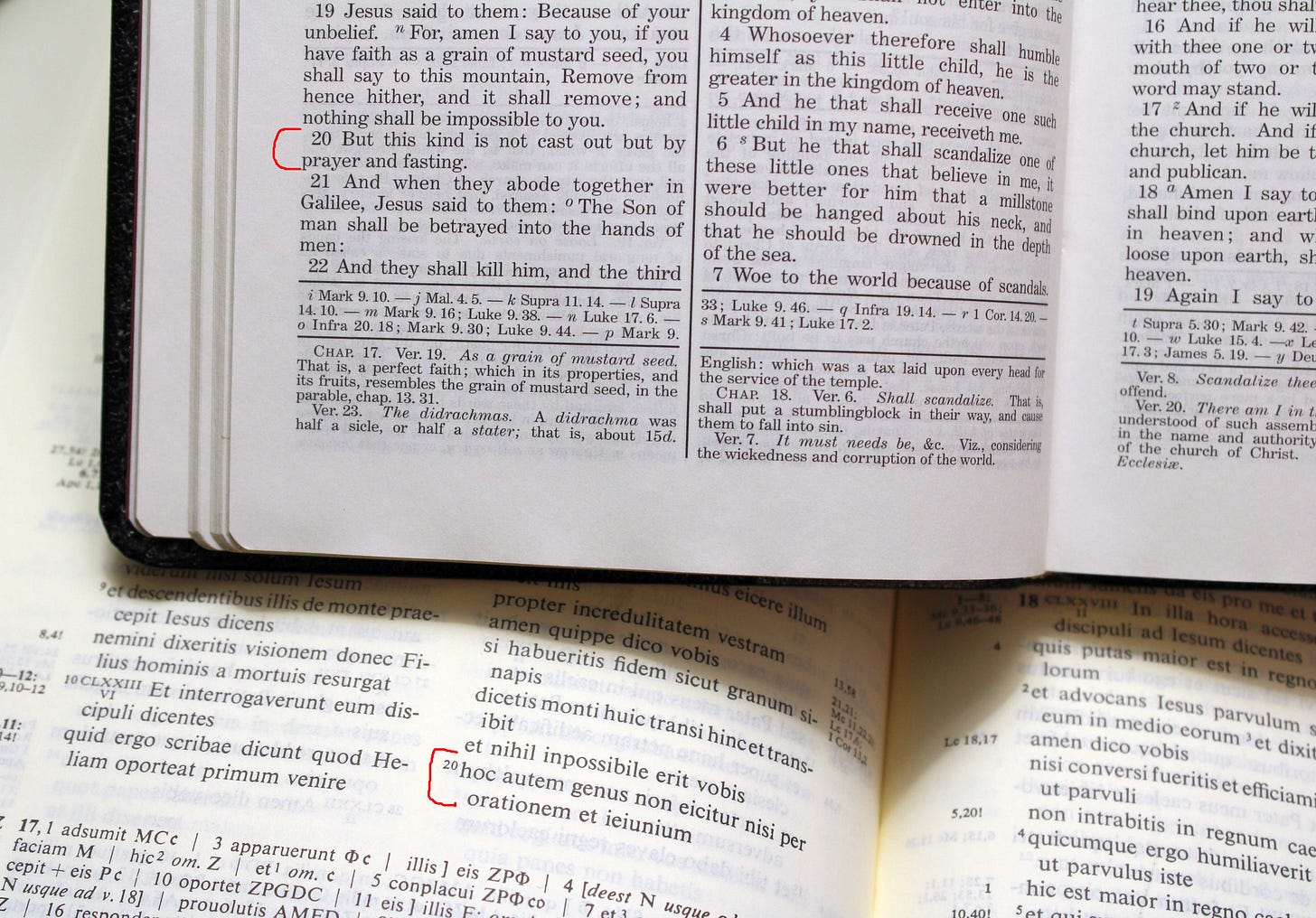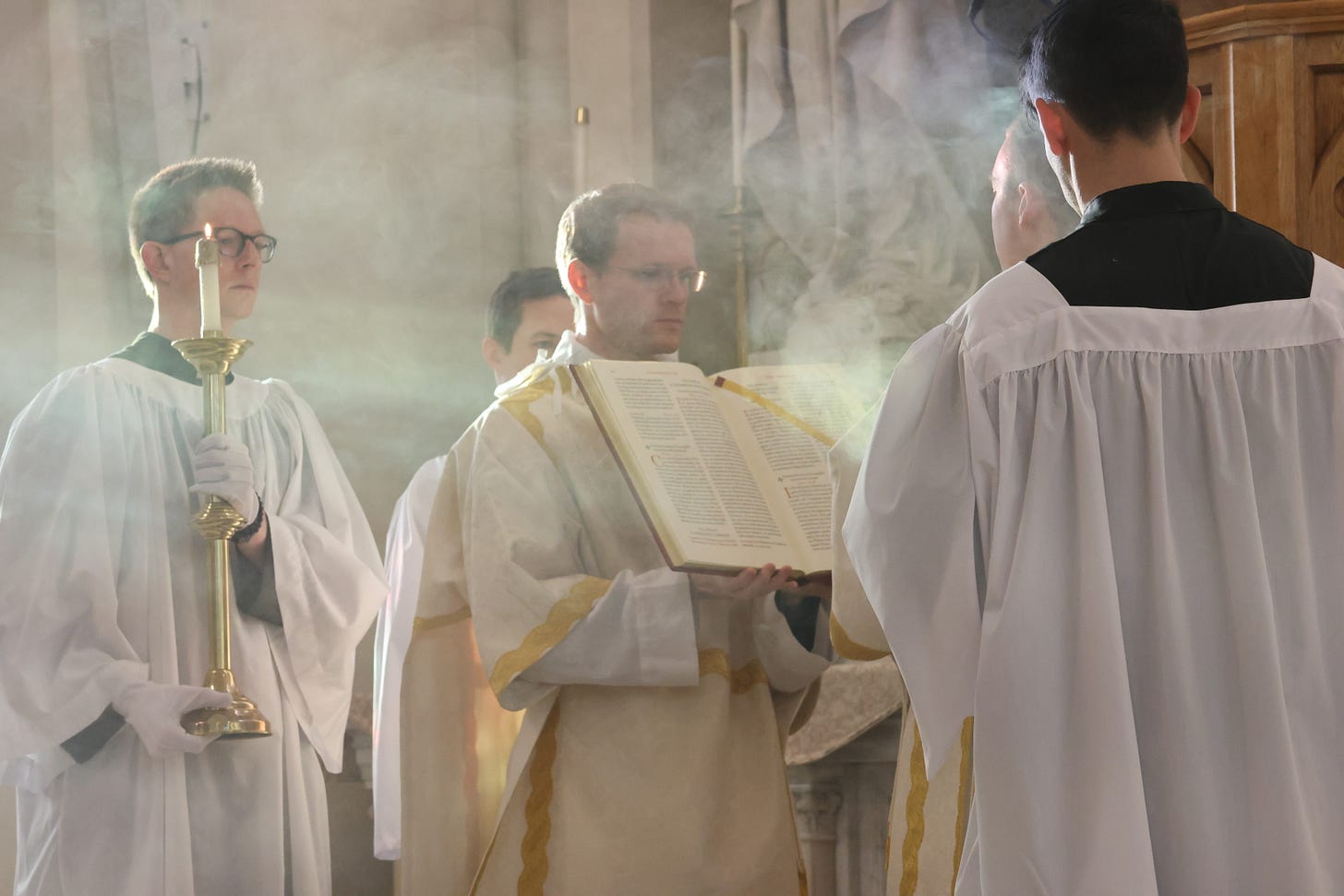What Should Take Precedence: Tradition or Scholarship?
Christus surréxit! Surréxit vere, allelúia! I wish all my readers a very blessed Easter. I hope that your celebration of the Triduum and Pascha was full of blessings.
Disappearing verses
In a sense, the question in the title may seem to present a false dilemma. Both tradition and scholarship have their places in the life of the Church. We should hold on to our inheritance and pass it down; we should always be studying the sources of our faith, making new discoveries, examining old assumptions, readjusting what may need readjustment due to sounder evidence.
However, there is a very basic area in which tradition should maintain a definite primacy: the liturgy. The fact that the Church has prayed a certain way for many centuries — perhaps millennia, in continuity with the Israelites — is a reason sufficient in and of itself to continue praying that way, to see it as God-pleasing, beneficial, and right in what it says and teaches. Moreover, and this will be my main focus, we should avoid taking steps that contradict the unbroken consensus of authoritative texts and practices.
This question came to my mind again recently because of a discovery made about the new lectionary and the Bible used for it in the United States.
You know that famous verse in Matthew 17, “But this kind [of demon] does not come out except by prayer and fasting”? You can find it in any old Bible, such as the Vulgate and the Douay-Rheims based off it:

Well, that verse — v. 21 in newer Bibles, v. 20 in older ones — was removed from the main text of the New American Bible [NAB]. A visit to the USCCB website will show this to be the case: for liturgical proclamation, that verse has gone missing:
The NAB furnishes a tiny footnote that says: “Some manuscripts add, ‘But this kind does not come out except by prayer and fasting’; this is a variant of the better reading of Mk 9:29.”
So, all eagerness, you go over and take a look at Mark 9:29 — and you find that the NAB’s main text has omitted the reference to fasting there, too, which makes any sensible person wonder how exactly this verse in Mark is considered “the better reading.” Sure enough, a footnote says: “A variant reading adds ‘and through fasting.’” Again, obliterated from liturgical proclamation.1
Keep reading with a 7-day free trial
Subscribe to Tradition and Sanity to keep reading this post and get 7 days of free access to the full post archives.




